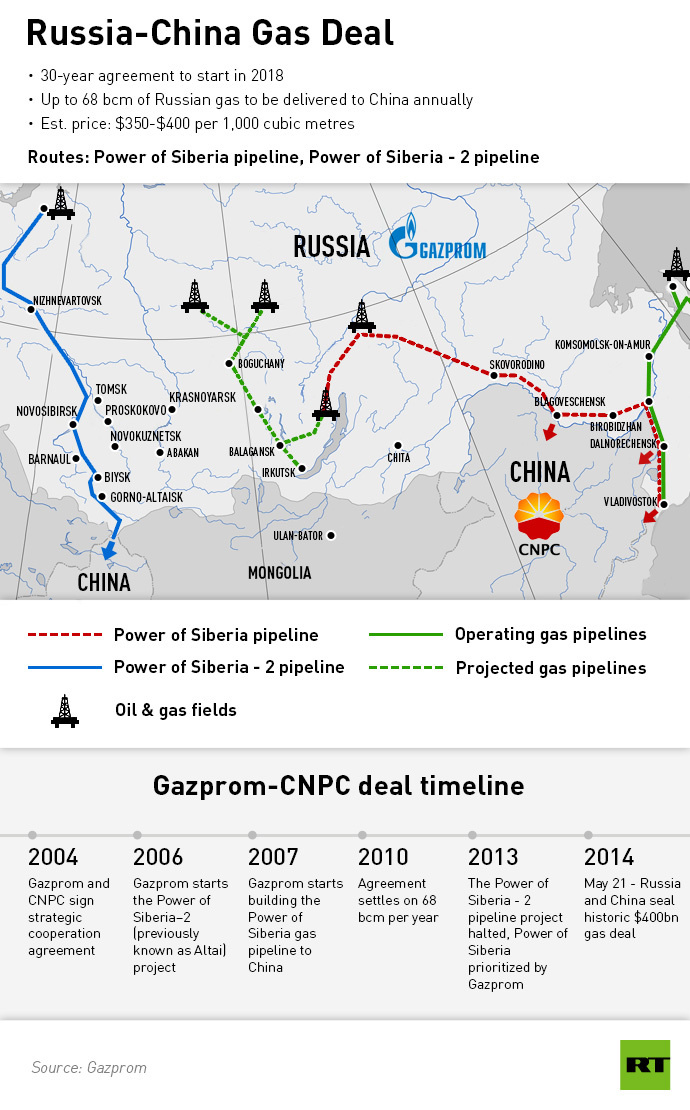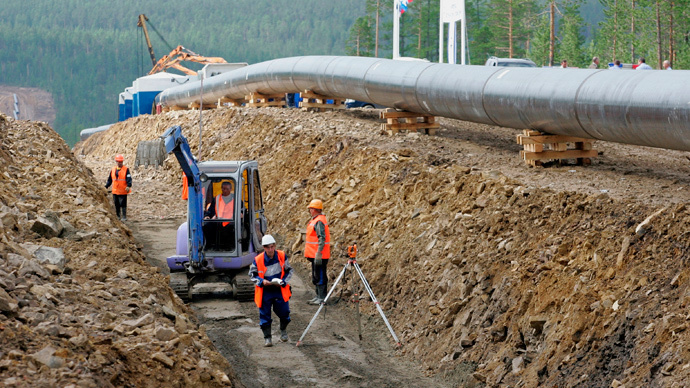China has officially started construction of its section of the eastern gas pipeline route known as the Power of Siberia that’ll deliver up to 38 billion cubic meters of Russian gas annually.
The welding of the first joint on the pipeline was part of the opening ceremony in China Monday. It was held near the Chinese city of Heihe of the northern Heilongjiang province bordering Russia. The pipeline will stretch as far as Shanghai.
Russian Prime Minister Dmitry Medvedev took part via a video
link. He called the
pipeline the world’s biggest infrastructure project.
The Vice Premier of the State Council of China Zhang Gaoli also took part in the ceremony via video link. He said that such large-scale projects are a good foundation for promoting a strategic partnership between the two countries and for social and economic progress.
The Power of Siberia gas pipeline is due to become fully operational in 2018 and will link with the Chinese gas infrastructure already in place, according to government papers.
In May 2014, Russia’s Gazprom and the China National Petroleum Corporation (CNPC) signed a 30-year framework deal to deliver 38 billion cubic meters of gas to China annually using the eastern route. The construction of the western pipeline named the Power of Siberia–2 ,that’ll deliver another 30 billion cubic meters of gas to China, will start soon Prime Minister Medvedev announced during the ceremony.
"I am sure that soon we will reach final agreement on building the second Russian-Chinese pipeline for gas deliveries via the Western route," Dmitry Medvedev said.
READ MORE: Russia and China seal historic $400bn gas deal
Moscow and Beijing will continue cooperating over energy, including nuclear power, as it is one of the major partnership areas between the two countries, according to Medvedev.
Earlier Gazprom head Aleksey Miller said the company was negotiating with China on settlements in rubles or yuan. So far, the price China will pay for Russian gas is unclear.
The global energy market has recently seen changes such as slowing demand from Europe and an increase in interest from Asian countries, Xin Zhang, Research Fellow at the School of Advanced International and Area Studies, told RT.
“The changes in the international market puts the Chinese side in the Russian energy deal in a slightly stronger bargaining position, so it’s the main drive behind the CNPC’s position to decline the advanced payment,” he said.
Russia started building its section of the 2,500-mile eastern route last year. The line’s gas transmission system (GTS) is expected on-stream in late 2017. The total cost of gas production and transmission facilities in Russia is estimated at $55 billion, Sputnik reports.
The Power of Siberia pipeline will also benefit the Russian regions it runs through, Medvedev added. Russia will increase its gas exports and speed up the gasification process in the Far East and Eastern Siberia, he said. The route was selected to ensure a large number of Russian cities and villages will have access to gas. It will provide new jobs, increasing the competitiveness of the region’s economy and its investment attractiveness.
Last year CNPC refused to pay Gazprom a $25 billion advance for the pipeline construction. The advance payment could have helped China get a discount for its gas from Gazprom.


